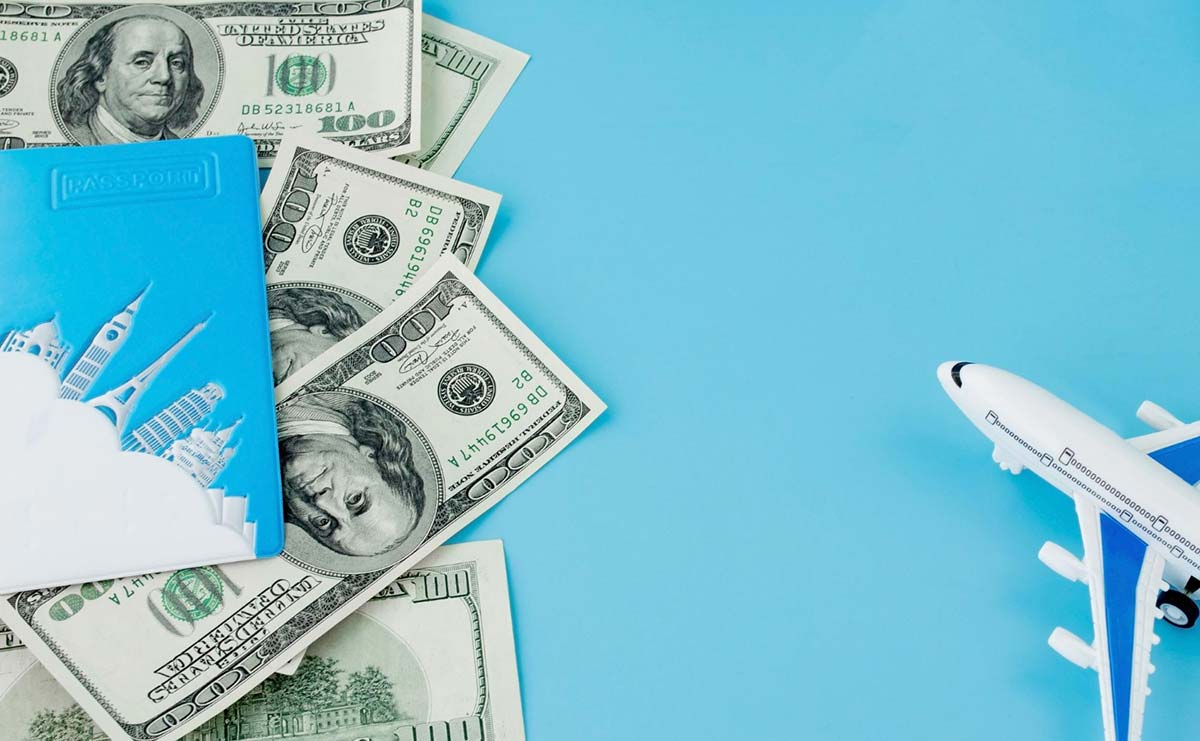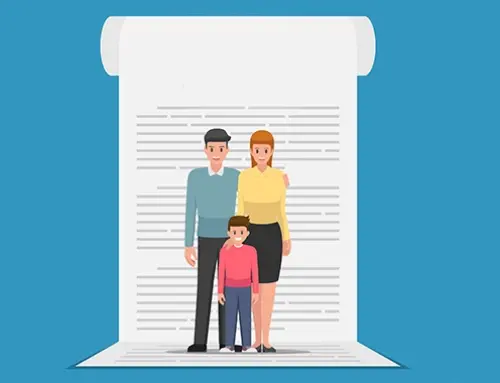Contents
What is the Legal Limit for Carrying Cash on a Flight to the U.S.?
There is no limit on the amount of cash or monetary instruments you can bring on flights to the U.S., but you must declare amounts over $10,000 to U.S. Customs using FinCEN Form 105 to comply with anti-money laundering laws. Not declaring could lead to cash seizure and legal consequences. It is also essential to check with the airlines for any specific carry-on restrictions or policies regarding the transport of large amounts of cash.
Transportation Security Administration
The Transportation Security Administration (TSA) is a U.S. government agency that was created in response to the September 11, 2001, terrorist attacks. Its primary responsibilities include overseeing security for the traveling public in the United States, primarily focusing on air travel. The TSA is part of the Department of Homeland Security (DHS).
Key Responsibilities and Activities of the TSA
– Screening Passengers and Baggage: The TSA screens all commercial airline passengers and their baggage before they board an airplane to ensure no prohibited items or potential threats are taken on board.
– Security Checkpoints: TSA operates security checkpoints at airports, where passengers and their carry-on items are screened. This process includes the use of metal detectors, full-body scanners (Advanced Imaging Technology), and physical inspections.
– Secure Flight Program: This program involves the pre-screening of passenger information against government watch lists to identify individuals who may pose a security risk.
– Air Marshal Service: The Federal Air Marshal Service (FAMS) is a component of the TSA that deploys air marshals on flights to protect passengers and crew from hostile acts.
– Canine Detection Teams: The TSA utilizes canine teams trained to detect explosives and other threats at airports and on mass transit systems.
– Training and Development: The TSA is responsible for training its workforce to effectively implement security procedures and use security equipment. This includes continuous improvement of security techniques and the adoption of new technologies.
– Public Awareness: The TSA runs campaigns to educate the public about security procedures and encourages the participation of travelers in maintaining security, such as the “If You See Something, Say Something” campaign.
– Regulations and Guidelines: The agency sets guidelines and regulations for airport security procedures and works with other national and international security organizations to harmonize security measures.
The TSA’s activities and policies are subject to change in response to evolving threats and technological advancements. The agency continually assesses and updates its security measures to enhance the safety of the traveling public while trying to minimize inconvenience during the screening process.
How Much Cash Can You Fly With?
When flying within the United States, there is no legal limit on the amount of carrying Cash or monetary instruments you can carry. However, if you are traveling internationally to or from the U.S., you must declare amounts exceeding $10,000 USD to the customs authorities. This declaration requirement also applies to any combination of currencies and monetary instruments that equal more than $10,000 USD. It’s important to comply with these regulations to avoid potential legal issues, including seizure of the funds or penalties. Additionally, for security and safety reasons, it’s wise to be cautious when carrying large amounts of cash.
U.S. Customs Cash Limit Per Person or Per Family
The U.S. Customs and Border Protection (CBP) regulation requires that if you are traveling into or out of the United States and are carrying more than $10,000 in cash or monetary instruments, you must declare the amount over $10,000. This requirement applies to the combined total for a family traveling together, not just per individual within the family. It means if a family as a whole carries more than $10,000, they need to file a report with CBP.
Monetary instruments include U.S. or foreign coins currently in circulation, currency, traveler’s checks, money orders, and negotiable instruments or investment securities in bearer form. It’s crucial to accurately report the total amount being carried to avoid penalties, which can include seizure of the funds or legal action. The declaration process is intended to combat money laundering and other financial crimes, not to limit the legitimate use or movement of money.
How Much Cash Can You Carry on a Plane Internationally?
When traveling internationally, the amount of cash you bring on a plane is not limited by international aviation laws, but it is subject to the regulations of the departing, arriving countries, and any countries through which you may transit. However, a crucial requirement shared by many countries, including the United States, is the obligation to declare amounts exceeding certain thresholds.
For the United States, if you are traveling to or from the country and carry more than $10,000 USD in cash or monetary instruments, you must declare this to the U.S. Customs and Border Protection (CBP) using the FinCEN 105 form. This rule applies to both U.S. citizens and foreign visitors. Failure to declare could result in the seizure of the cash or even legal penalties.
The $10,000 threshold is not limited to cash alone but includes travelers’ checks, bearer instruments, or other liquid assets. For families traveling together, this amount applies to the family unit rather than being a per-person limit.
It is essential to check the specific regulations of your destination country and any transit countries regarding cash limits and declaration requirements, as these can vary significantly and may have different thresholds or requirements for declaration.
Carrying Cash on Domestic Flights: Understanding the Legal Limits in the U.S.
The Transportation Security Administration (TSA) does not restrict the amount of cash or monetary instruments you can carry on a domestic flight. Their primary concern is safety, so passengers are screened for items that could pose a security threat. While cash does not fall into this category, large amounts of cash may be subject to additional scrutiny during the screening process.
Carrying large sums of cash can attract the attention of law enforcement officials. While it’s legal to carry any amount, law enforcement officers may inquire about the source and intended use of the cash. In certain circumstances, if they suspect the money is related to illegal activities, they have the authority to seize it under civil asset forfeiture laws, even without charging you with a crime. Recovering seized assets can be a lengthy and complicated process.
Some airlines might have their own policies regarding carrying valuable items, including cash. It is a good idea to check with your airline before traveling to see if they have any specific guidelines or recommendations. If you are carrying a significant amount of cash, consider whether your travel insurance policy covers loss or theft of cash and under what conditions. Some policies have specific limits and exclusions for cash.
Defining Cash: What Counts as Cash?
“Cash” typically refers to money in the form of currency, which includes physical banknotes and coins that are in circulation. However, in financial and accounting contexts, the definition of cash can broaden to include various forms of liquid assets that can be quickly and easily converted to a known amount of currency. This is inclusive of the following:
- Physical Currency: This is the most straightforward form of cash, comprising banknotes and coins that are used for transactions.
- Deposits in Banks: Money held in checking accounts, savings accounts, or money market accounts is often considered cash because these funds are readily available for withdrawal or for making payments.
- Cash Equivalents: These are short-term, highly liquid investments that are readily convertible to known amounts of cash and which are subject to an insignificant risk of changes in value. Examples of cash equivalents include Treasury bills, commercial paper, and money market funds. The key criteria for an investment to be considered a cash equivalent are that it must be easily convertible to cash, and it must be close to its maturity so its market value is not sensitive to interest rate changes.
- Foreign Currency: Cash can also include foreign currencies held for immediate transactions. However, in financial reporting, the value of foreign currency is usually converted to the reporting currency based on the current exchange rate.
- Petty Cash: This is a small amount of cash on hand used for minor expenses. In businesses, petty cash is used for transactions where it is not practical to make a payment by check or electronic funds transfer.
- Negotiable Instruments: Some definitions of cash also include certain types of negotiable instruments such as bank drafts, cashier’s checks, or money orders, which can be quickly converted into cash.
In summary, while cash primarily refers to physical money in the form of coins and banknotes, in financial terms, it can also include any asset that can be quickly turned into cash with minimal risk of loss in value. The broader concept of cash is crucial for understanding liquidity in both personal finance and business operations.
How to Declare Cash at Customs?
Declaring cash at customs is an important process for travelers carrying significant amounts of currency or monetary instruments when crossing international borders. The specifics can vary by country, but here are general steps and tips on how to do it:
1. Know the Limits
- Most countries have a threshold amount (often around $10,000 USD or equivalent in local currency) above which you must declare your cash. This includes the combination of foreign and domestic currencies, as well as monetary instruments like traveler’s checks, promissory notes, and bonds.
2. Complete the Declaration Form
- Upon arrival or departure, look for a customs declaration form. This can sometimes be done on the airplane or at the customs area in the airport.
- Fill out the form accurately, listing the amount of cash and/or monetary instruments you’re carrying. Some countries might require you to declare even if you carry less than the threshold but are close to it.
3. Present Identification
- Have your passport and any other required identification documents ready for inspection. You might also need to show proof of the origin of the funds (withdrawal slips, a letter from your bank, etc.) and your intended use of the cash.
4. Be Honest and Accurate
- Always be truthful and precise in your declaration. Failure to declare or provide false information can lead to fines, confiscation of the undeclared amount, and sometimes even criminal charges.
5. Ask for a Receipt
- Once you have declared your cash, the customs officer might count it and then provide you with a receipt or form indicating that you have complied with the regulations. Keep this document safe as proof of declaration.
6. Know the Rules for Both Ends
- Be aware of the cash declaration requirements not just for the country you are leaving but also for the country you’re entering. Some countries might have more stringent rules or lower thresholds.
7. Check for Updates
- Regulations can change, so it is a good idea to check the latest requirements on the official customs website of the countries you’re visiting before you travel.

Safeguarding Your Finances During US Air Travel
Safeguarding your finances during U.S. air travel involves a blend of practical steps and precautions to ensure that your money and financial information remain secure throughout your journey. Here are several strategies:
Before Your Trip
- Inform Your Bank and Credit Card Companies: Before you leave, inform your bank and credit card companies of your travel dates and destinations. This will prevent your accounts from being frozen due to suspicious activity.
- Use Credit Cards When Possible: Credit cards offer better fraud protection than debit cards. In case of unauthorized transactions, it is easier to dispute charges with a credit card.
- Carry Multiple Forms of Payment: Do not rely on a single card or payment method. Bring a mix of cash, credit cards, and debit cards, and keep them in separate places.
- Secure Your Financial Information: Make digital copies of important financial documents and cards (both front and back). Store these securely online, or in a secure app, so you can access them if needed.
- Set Spending Alerts: Many banks and credit card companies allow you to set up transaction alerts. This will help you monitor your accounts for unauthorized activity in real time.
During Your Trip
- Use ATMs Wisely: Only withdraw cash from ATMs located in secure locations, such as inside banks. This reduces the risk of skimming devices.
- Stay Alert in Crowded Places: Airports and airplanes can be hotspots for petty theft. Keep your wallet, passport, and other valuables in secure, hard-to-reach places.
- Monitor Your Bank Accounts: Regularly check your accounts online for any unusual activity. The sooner you spot something suspicious, the quicker you can act.
- Be Cautious with Public Wi-Fi: Avoid logging into financial accounts or making transactions when connected to public Wi-Fi networks. Use a virtual private network (VPN) for better security.
In Case of Theft or Loss
- Know Whom to Contact: Have a list of emergency contact numbers for your bank and credit card companies. If your wallet is lost or stolen, report it to them immediately to freeze your cards and prevent fraudulent charges.
- Report to the Authorities: If your belongings are stolen, report the incident to the local police and obtain a report. This may be necessary for insurance claims and to dispute unauthorized transactions.
Insurance and Assistance
- Consider Travel Insurance: Some travel insurance policies offer protection against theft of cash and fraudulent charges. Review the terms carefully to understand what is covered.
- Emergency Cash Services: Some credit card companies and banks offer emergency cash services if you are stranded without your cards. Familiarize yourself with these options before you go.
Implementing these strategies can significantly reduce the risk of financial loss and identity theft during U.S. air travel, allowing you to focus on enjoying your trip.
Customs Confiscations and Financial Penalties
In the United States, customs confiscations and financial penalties are governed by a complex set of laws and regulations enforced by the U.S. Customs and Border Protection (CBP) and other federal agencies. These measures aim to regulate the flow of goods into and out of the country, ensuring compliance with U.S. law, including taxation, trade agreements, and prohibitions on certain items.
To minimize the risk of customs confiscations and financial penalties, individuals and businesses importing goods into the U.S. should:
- Understand and Comply with Regulations: Familiarize yourself with the relevant U.S. laws and regulations regarding imports and exports.
- Accurate and Complete Documentation: Ensure all import documentation is accurate and complete. This includes invoices, packing lists, and any required permits or certificates.
- Use of Licensed Customs Brokers: Consider employing the services of licensed customs brokers who are experts in navigating the complex U.S. customs regulations and can help ensure compliance.
- Regular Compliance Checks: Regularly review and update compliance procedures, especially if importing a wide range of goods or goods subject to specific regulations.
Compliance with U.S. customs laws and regulations is crucial for smooth importation of goods and to avoid the significant costs and delays that can result from confiscations and financial penalties.
Does the TSA Have Authority to Seize the Cash?
The Transportation Security Administration (TSA) itself does not have the authority to seize cash based solely on its amount or the suspicion of criminal activity related to the cash. The TSA’s primary role is to ensure the safety and security of travelers by preventing dangerous items from being transported on aircraft. Their focus is on security screening procedures at airports, including checking passengers and their luggage for items that could pose a threat to flight safety.
If TSA officers encounter large sums of cash or other valuables during their routine security screenings, they do not seize these items for being cash alone. However, if they believe the cash may be related to criminal activity, they can refer the matter to law enforcement agencies present at the airport. This could include local or state police, or federal agencies like the FBI or the Drug Enforcement Administration (DEA), who have the authority to investigate further.
In cases where law enforcement is involved:
- Law Enforcement Review: Law enforcement officers can interview the individual and investigate the situation to determine if the cash is related to criminal activity.
- Potential Seizure: If law enforcement has reasonable suspicion or evidence that the cash is connected to illegal activities, they have the authority to seize it under civil asset forfeiture laws, which allow the government to take assets suspected of being connected to crime.
- Legal Process: The individual from whom the cash was seized may have the opportunity to contest the seizure in court, seeking to prove that the money was legally obtained and not related to criminal activity.
It is crucial for travelers carrying significant amounts of cash to be aware of the legal implications and the potential for law enforcement scrutiny. Please keep in mind that if you are traveling internationally, you must be aware of specific reporting requirements for carrying cash or monetary instruments that exceed $10,000 into or out of the United States. These requirements are enforced by the U.S. Customs and Border Protection (CBP), not the TSA. It is important to declare such amounts to avoid seizure by CBP and potential legal penalties.
Steps to Take When Detained by TSA for Carrying Cash
If you are detained by the Transportation Security Administration (TSA) for carrying a large amount of cash while traveling within the United States, it is important to know your rights and understand the best steps to take to handle the situation calmly and legally. Here are some recommended steps:
1. Understand Your Rights: You have the right to carry any amount of cash when traveling within the United States, but you must declare amounts over $10,000 to customs when entering or leaving the country. TSA agents may question you about large amounts of cash but should not confiscate it without involving law enforcement.
2. Ask for Clarification: Politely ask why you are being detained and the reason for any search or questioning. You have the right to be informed about what is happening.
3. Request Legal Representation: If the situation escalates, or if you feel your rights are being violated, ask to speak to a lawyer immediately. You have the right to legal representation during questioning by authorities.
4. Do Not Sign Anything Without Understanding: If you are asked to sign any documents, read them carefully and understand the implications. If you are unsure, ask to consult with an attorney before signing.
5. Document the Encounter: If possible, take notes or mentally record the names and badge numbers of the agents involved, the time and duration of your detention, and details of the interaction. This information can be helpful if you need to file a complaint or take legal action later.
6. Know the Limits of TSA’s Authority: The TSA’s primary role is to ensure the safety of air travel, which includes screening passengers and baggage for prohibited items. They may ask questions about large sums of cash to rule out illegal activity, but they do not have the authority to confiscate money without involving law enforcement.
7. Consider Filing a Complaint: If you believe your rights were violated during the encounter, consider filing a formal complaint with the TSA and seeking advice from a legal professional to explore your options.
8. Prepare for Future Travel: If you frequently travel with large amounts of cash, consider carrying documentation that explains the source and intended use of the money. This might help avoid future detentions or delays.
How to Access FinCEN Form 105?
To access FinCEN Form 105, also known as the Currency and Monetary Instruments Report (CMIR), you typically have several options. FinCEN, or the Financial Crimes Enforcement Network, is a bureau of the U.S. Department of the Treasury. The form is used to declare the physical transportation of currency or monetary instruments into or out of the United States, or the receipt of currency or monetary instruments from outside the United States when the amount exceeds $10,000 USD.
- FinCEN’s Official Website: The most direct way to access FinCEN Form 105 is through the FinCEN website. They usually provide downloadable forms in PDF format that can be filled out electronically or printed and filled out by hand.
- U.S. Customs and Border Protection (CBP): Since Form 105 is required for declaring currency when crossing U.S. borders, U.S. Customs and Border Protection officers can provide the form at points of entry or exit. It can also be found on the CBP website.
- Financial Institutions: Some banks and financial institutions may provide their customers with access to FinCEN Form 105, especially if they are facilitating international transactions that might require the declaration of currency or monetary instruments.
- Tax Professionals or Legal Advisors: Professionals who specialize in tax or international financial law may also be able to provide you with the form or direct you to where it can be accessed.
It is important to fill out this form accurately and completely to comply with U.S. laws regarding the transportation of currency and monetary instruments. Failing to properly declare such items can lead to significant penalties.
Conclusion
In conclusion, understanding and adhering to the regulations governing the transport of cash and monetary instruments when flying to, from, or within the U.S. is paramount for travelers. The TSA, along with U.S. Customs and Border Protection, plays a critical role in ensuring the safety and security of air travel, part of which involves monitoring the flow of large sums of money to prevent money laundering and other financial crimes. While there are no limits to the amount you can carry, the key is in compliance with declaration requirements for amounts exceeding $10,000, to avoid potential legal consequences or the seizure of funds. Whether you are carrying cash for personal or business reasons, staying informed about these requirements, along with the TSA’s security measures and procedures, ensures a smoother journey. It is also a good practice to consider the safety of your finances by exploring alternative payment methods and understanding the options available for safeguarding your assets during travel.
Disclaimer: The content provided on this blog is for informational purposes only and does not constitute legal, financial, or professional advice.







